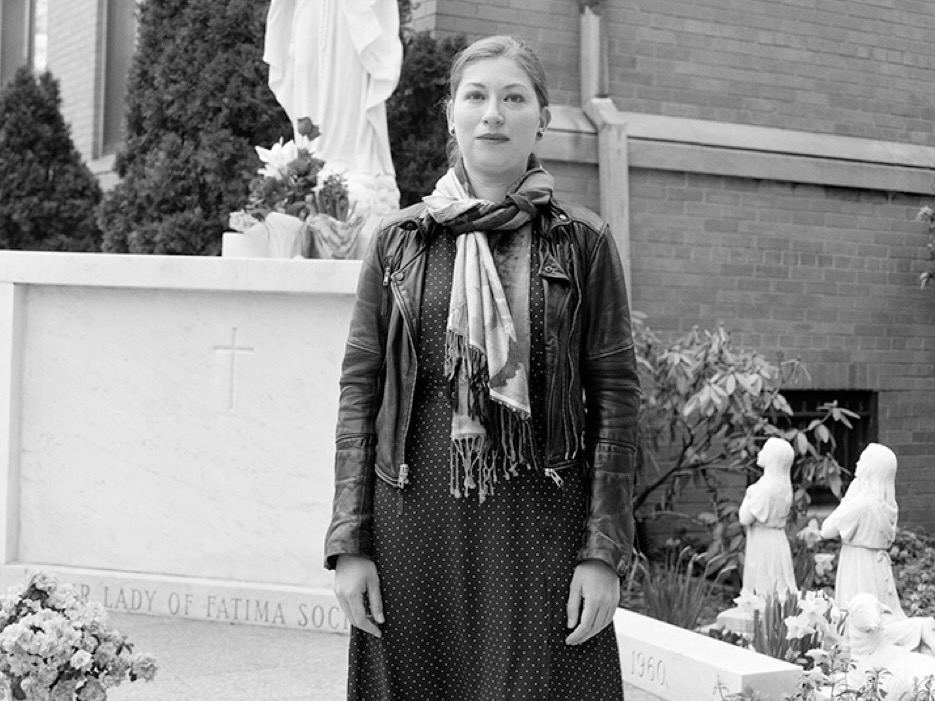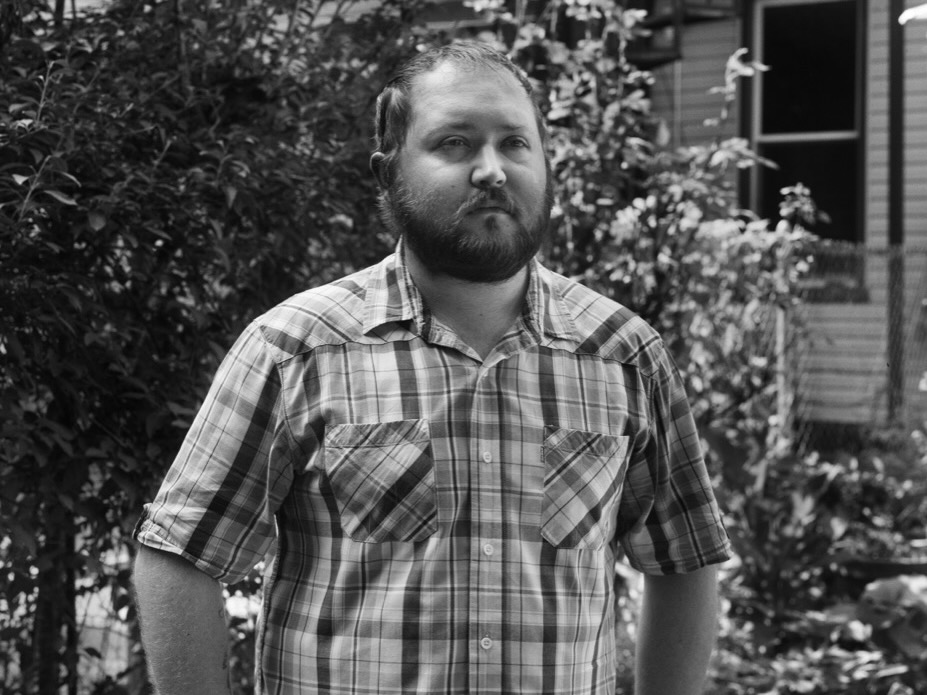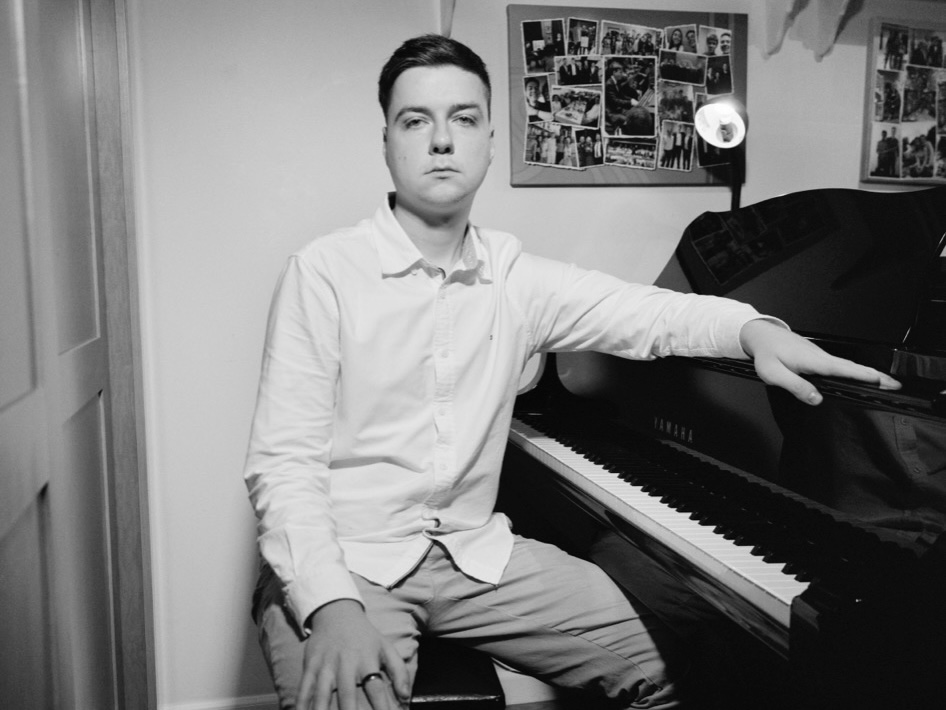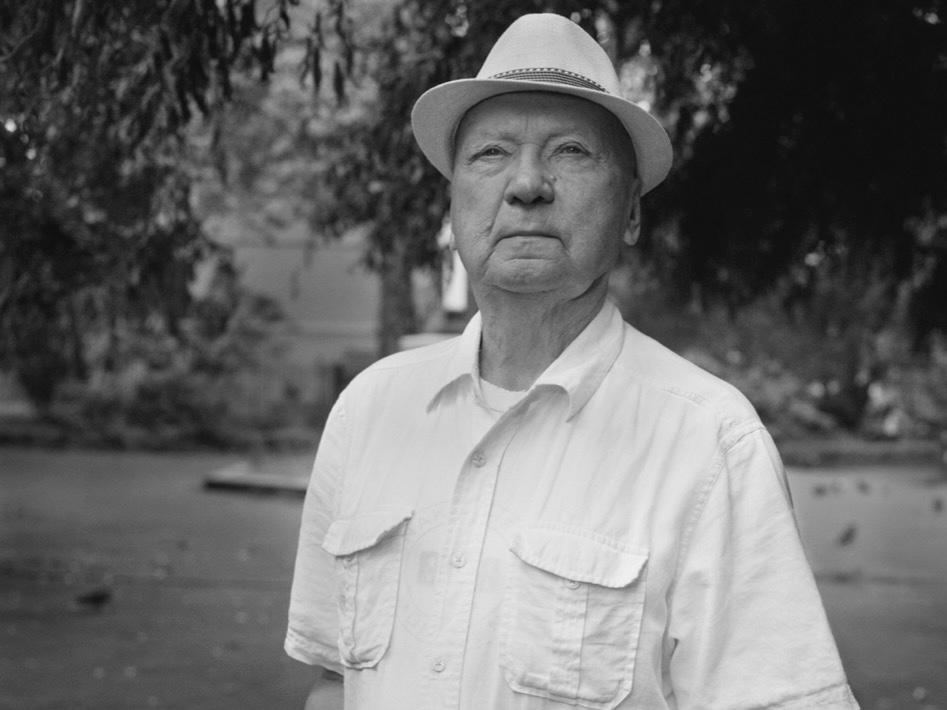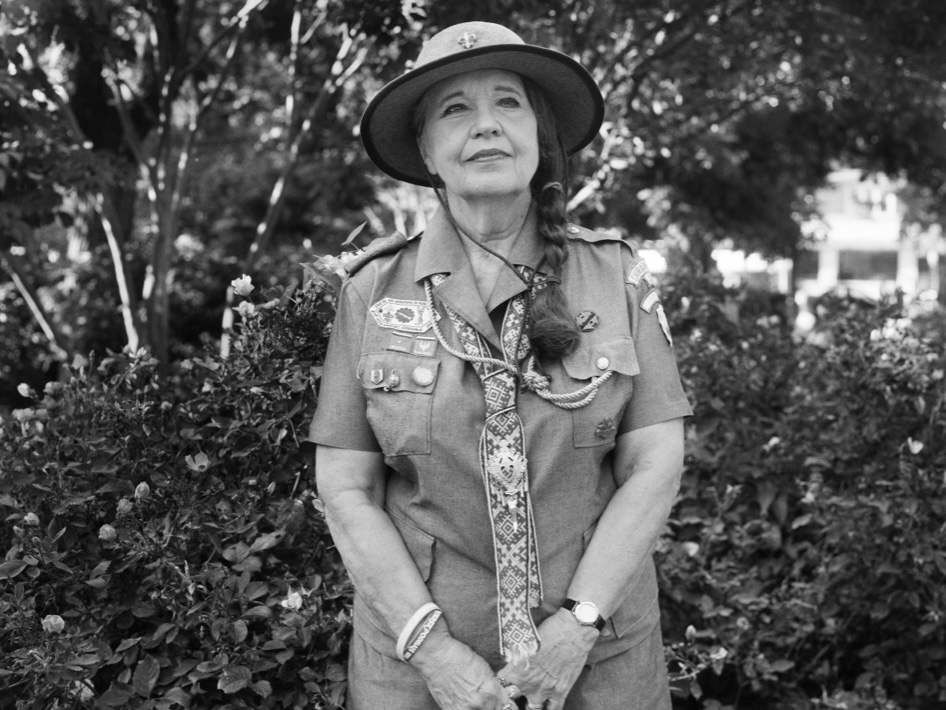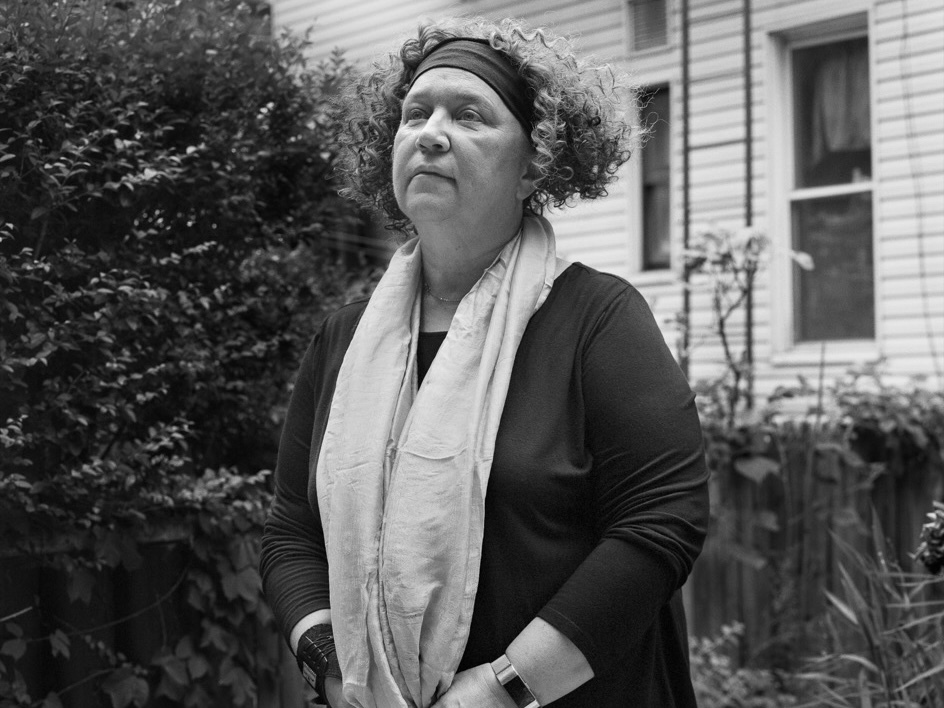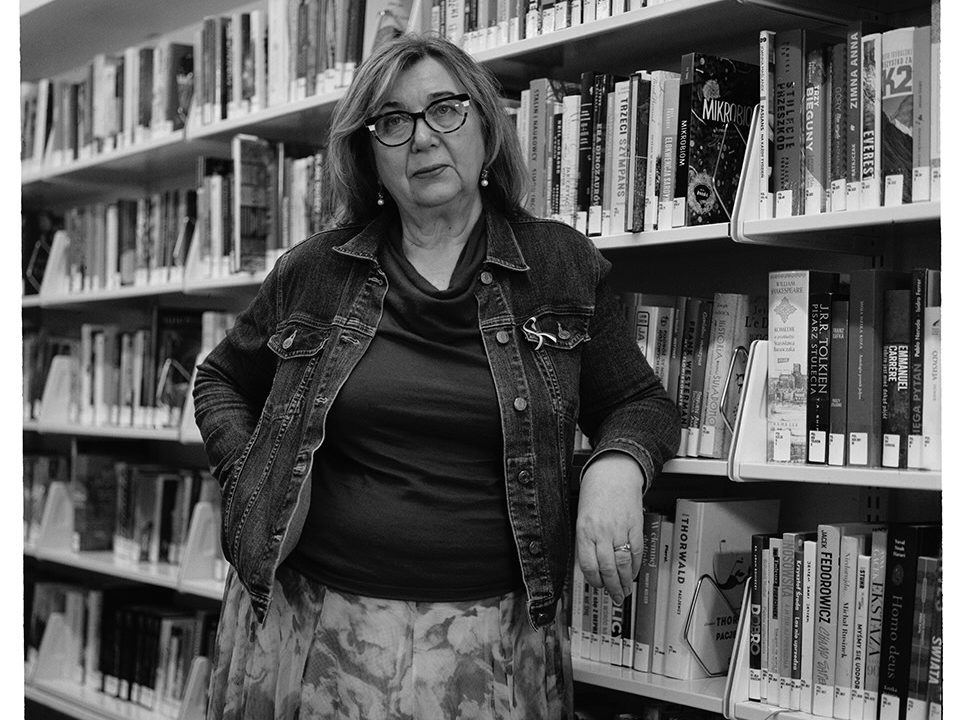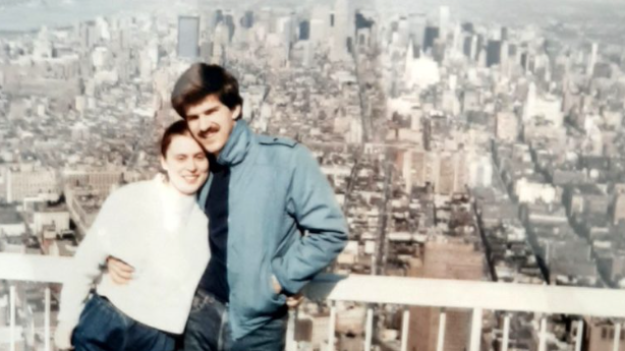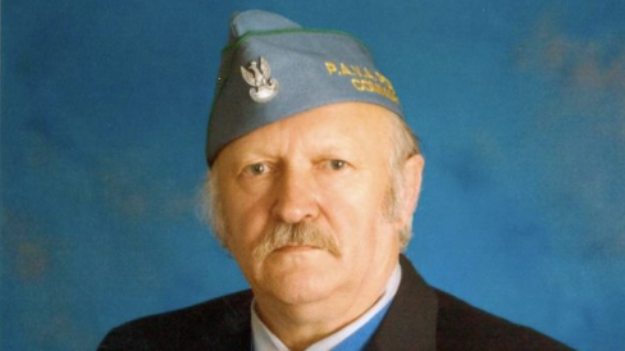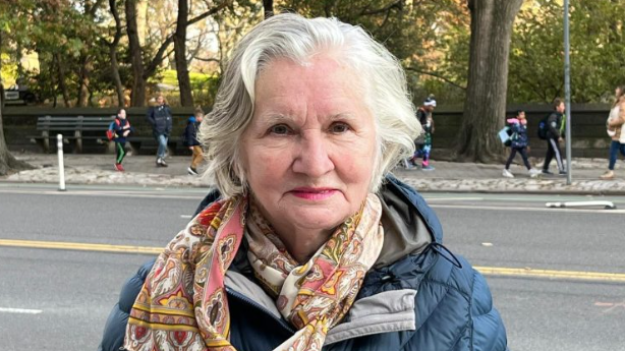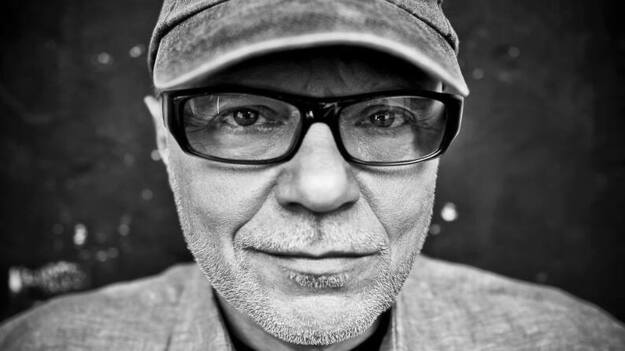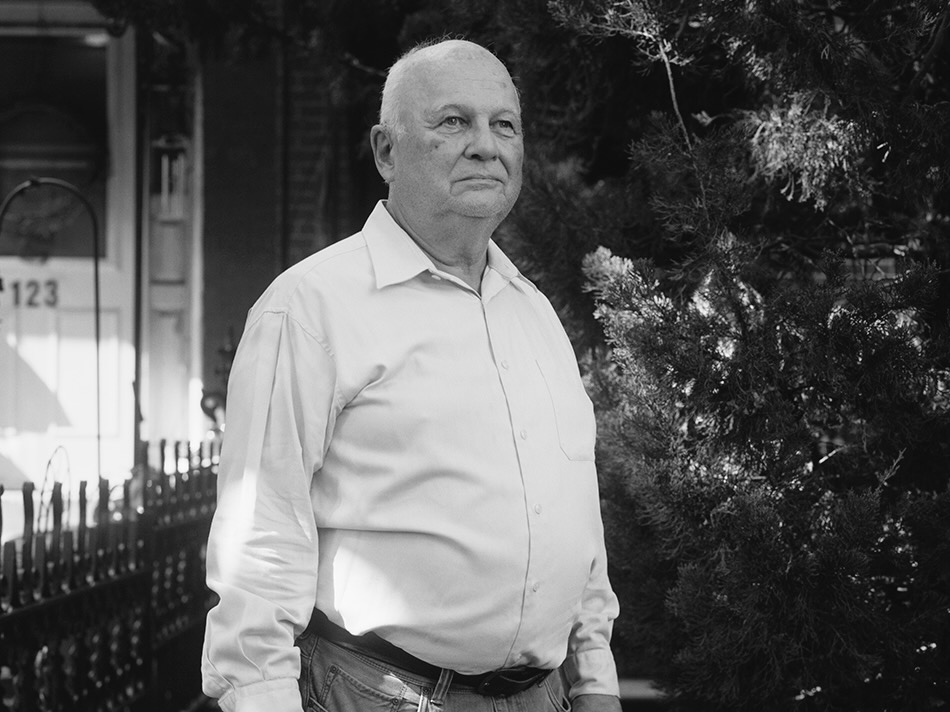
Poles, who lived in Greenpoint, worked hard, and for the saved money, they bought houses. They didn’t eat enough but invested money. The Irish were nervous that we had purchased the prettiest homes on Milton Street – the most beautiful street in Greenpoint.
My parents came in 1950 with me, who was two years old. They met in Europe. My mother came from Ukraine, lived near Kyiv, and survived Stalin’s times. Her brother died of hunger in 1933.
My mother and her friends knew well that returning to the Stalinist country meant death. They realized they had to run away west and meet good Polish boys with whom they would go even further, to the west side. As she did not live close to the Polish-Ukrainian border, she did not know that Poles are rather not liked.
Dad came from Busko-Zdrój. He was taken prisoner and then sent to a DP camp. He was quiet and did not drink or smoke. Mom was happy that she found such a husband. Sometimes only her friend boasted that she had found an even calmer one. Mom learned the Polish language. Until eight, I did not know that my mother was not Polish.
When I was little, I had to read aloud from a Polish newspaper after dinner. It was a pain for me, little one. When I tried to speak English with my dad, he said he didn’t understand me. He lied, as I heard him talking in the store, but my dad wanted me always to remember the Polish language.
From 1956, on Saturdays, I attended a Polish school named after Maria Konopnicka at the National House on Driggs. Plenty of us were there. More and more children came. History lessons, Polish language, and geography were from nine to twelve. I was furious because colleagues of other nationalities did not have to attend this Driggs school. Fortunately, there was dancing and singing after school. I could have been a better singer, but an excellent dancer. I danced in a band for forty years. I know Mazurek and polonaise, and I’m always eager to dance.
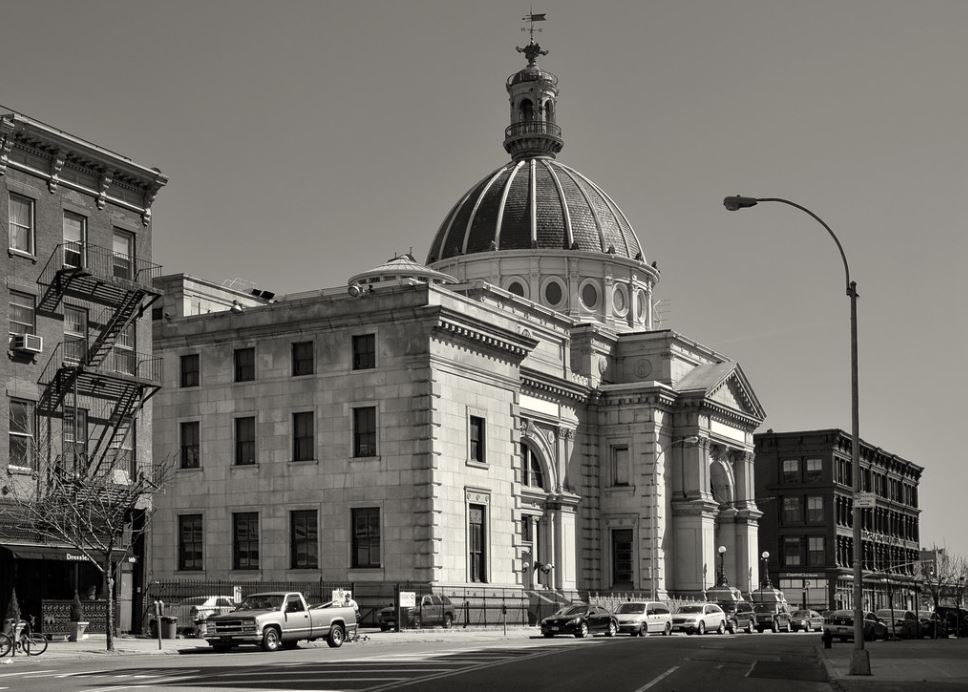
I attended a Catholic middle school, a city college, and a university. There were no more classes in Polish. You see, but Dad won: the Polish language is still in my head.
For my parents, living in America must have been difficult because of material reasons and because it was far from Poland and Ukraine. They hadn’t seen any black people before they came here. Maybe some American soldiers during the war, but I don’t know. They had to get used to it, which was difficult for them.
In 1961 they bought a house on Kent Street. Small, for three families. The house was built in 1854. Our Polish friends made fun of our parents that they bought such a small house. Other Poles bought houses for eight families to rent flats and earn income. But when you bought a house with eight apartments, it was a so-called “railroad apartment.”

Even if you took two apartments for yourself, you still lived in a “railroad apartment,” only a bigger one. My parents replied, “Why should we buy a house to continue living like beggars?” A friend’s house, which his parents bought on Java Street, now costs two million dollars, while my parents’ house is worth three million. There is a difference, right?
With this house we bought, we weren’t such greenhorns anymore, newcomers. It used to be like this: “Oh, go back where you came from; your mother dresses like a peasant.” Not only Americans said that, but other immigrants, too. Immigrants always think that they have priority over other immigrants. They set boundaries and say, “You are not allowed.”
And sometimes they fight. Back in my day, they used to fight in McCarren Park. With fists and maybe sticks. I didn’t fight because I always preferred jokes to beat. And people liked me. There was always someone I knew: “Hey, I know him out of school; leave him alone.”
I went with Puerto Ricans to schools because there were many of them, even in my Polish Catholic school. I went to high school with Italians from Northside. And we had Irish for the neighbors.
Serious fights between Poles and Latinos may have started in the 1970s and 1980s. Life was more accessible for Puerto Ricans then; they immediately had a work permit, citizenship, and benefits. This annoyed the Poles. My father worked with blacks and Puerto Ricans. They were friendly, but they kept coming to borrow money from him. Father was pissed: “I just got paid; why do you want to borrow money from me already? Separate your money for food and housing. Don’t over drink.” He believed that these people of color did not want to study and did not want to work.

We worked hard, and for the saved money, we bought houses. We didn’t eat enough but invested money. The Irish were nervous that we had purchased the prettiest homes on Milton Street – the most beautiful street in Greenpoint. Many other streets in the 1970s were not nice.
Much later, I worked with Spanish organizations based in Williamsburg and Greenpoint. We raised funds to open homes for seniors and care centers. We also advised families living there. Who was threatened with eviction? How is it, they asked, that Poles built their houses and we didn’t? I didn’t mean to say: you are lazy and we are hardworking, because that would not be a polite answer. So I was only saying: those who survived the war and those who came from communism wanted something of their own because they had nothing in the commune.
I stayed in this district even though I worked in a brokerage firm and could live anywhere. I had the position of National Sales and Marketing Director for Research. I was giving speeches and lectures, advising brokers on what to say and buy. Of course, you’re right; I was a well-paid fairy. I repeated what our Ph.D. researchers said and told them they knew nothing. They were too close to the companies they analyzed. And they always say too late what needs to be bought. The rule is simple: buy stocks that everybody hates. Whatever.
I traveled all over the US, but Greenpoint was the center of the space. It was my village, with my family and dance band. With the best airport access: ten minutes to LaGuardia, twenty minutes to JFK, and thirty minutes to Newark, twenty minutes by train to Manhattan during the week. People moved out to Long Island and then commuted two hours each way. They cried, but they commuted.

I got married in 1971. Then my eldest son was born. First, we stayed with my wife’s uncle. He had an eight-family, ‘subway house.’ After a few years, I bought a single-family house – a beautiful one. I maintain its historic style and do not rent. I don’t want the tenants to bother me. I’ll tell you: historical style is significant, but not everyone appreciates it. People put roofing felt on the roof or siding on the walls. I fought for this style in the Planning Department, and since 1983, my part of Greenpoint has been a monument.
A friend with whom I danced in a folk band lived on this beautiful street. We danced very well. She was pretty, graceful, and intelligent. I was forty; she was twenty-one. And that’s how my younger son was born in 1988. I didn’t want to divorce my wife so as not to break up two families. It must be said that it was not without complications; it could be a good story for a book. Well, but nothing.
Of my friends who grew up in this neighborhood, everyone wanted to escape from Greenpoint as soon as they grew up because everyone lived in hovels, really terrible apartments, and I already didn’t.
I lived in a good house in a living District. Those who escaped and sold their hovels before are now suffocated with anger. One stingy friend sold her mother’s house twenty years ago and moved to New Jersey. She sold it for two hundred thousand; now she would sell it for two and a half million.
I stayed. Fellow traders in California said, ‘Richard, how can you live in Brooklyn? What’s there?‘ I replied, ‘Well, you live in Newport Beach, California, and must maintain a certain lifestyle.’ When you drive a cheaper car than a BMW, you feel poor and have to compete with others.

I drive a subway every day, I go back to my neighborhood, where nobody cares what I look like, and I can relax. They said, ‘Richard, what are you doing on the weekend in this Greenpoint of yours?‘ And I replied: ‘I’m going to dance Mazur and Oberek.‘ ‘Are you paid for performing that Polack stuff?‘ ‘Are you paid for this?‘ I looked at them with astonishment: ‘It is about my place on earth; don’t you need it?‘


